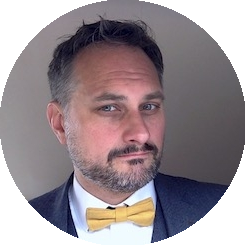The ARIDLL project aims to develop a cooperation partnership and a professional community in Augmented Reality (AR) instructional design for language learning.
Overview
The project is motivated by the need for digital innovation in language teaching. More specifically, we respond to the need of language teachers to have the appropriate skills (see DigCompEdu) for applying digital technologies, such as AR, in their practice, as both users and creators of educational materials (Kessler, 2018, see here). Tafazoli and Meihami (2022, see here) highlight the importance for teacher preparation programs to develop language teachers’ collaboration, digital literacy and teacher autonomy, whilst Greg Kessler (2022) notes that many language teachers have not embraced the tools and associated practices that have been available to them and, as a result, they find themselves drastically unprepared to work in online and hybrid contexts (read more here).
Research shows that AR has become a popular technology and educational mobile AR applications are available, especially for science (e.g., AR Solar System). Research documents various positive effects of using educational apps in teaching (Liono et al. 2021, Dunleavy & Dede, C, 2014, see here). However, there are numerous challenges regarding the use of AR in educational settings in general and in foreign language (FL) teaching in particular. The technology is still new, and few best practices examples exist in the teaching community. Teachers generally are not familiar with AR-specific instructional and learning design mechanisms that would allow them to integrate the technology into the teaching process and into the curriculum.
There are few AR apps for FLL and few content authoring tools that allow non-technical users to create materials. A recent review of research into AR in language learning shows that AR applications for language learning usually do not consider learning theories in their implementation (Parmaxi and Demetriou 2020, see here).
In addition, most of the currently available authoring tools are not freely available and those which are free offer only very limited access to the resources and tools needed (i.e. toolbox) to build AR environments. Such a lack of authoring tools and AR materials is especially notable in the area of FLL. Moreover, there is a lack of availability of AR materials in a range of languages, including less commonly taught languages.
ARIDLL aspires to fill the identified gaps by providing pre-service and in-service language teachers with support and materials to facilitate the use of AR in their practice. The project will develop these materials and evaluate them in different contexts, from schools to universities, focusing on different languages.
The role of IET
The Open University is providing an indispensable addition to the EU partnership, because it leads on the development of MirageXR, the Open Source toolkit for eXtended Reality learning and the IEEE standard setting its foundations and ensuring interoperability (Wild, Perey, Dargue, 2020: IEEE Standard for Augmented Reality Learning Experience Model, IEEE Std. P1589-2020). The chair for performance augmentation combines unique expertise both in Augmented Reality and in Language Technologies, evident, for example, through the leadership on the CRAN task view on natural language processing. This allows for this project to provide extensions to MirageXR efficiently and effectively, optimising its use for language learning.
Impact
The long-term goal of the project is to develop a small self-sustaining community of practice for language teachers who develop and use AR materials. The project will initiate this community and equip it with digital tools to share both learning materials and teaching experiences. The project will attempt to generate enough interest and real use of the results so that the community members see a real benefit from their participation. The experience obtained in the community is transferable to other areas of education, beyond language learning.
People
-
RH
Robert Hillman
-
LA
Lina Adinofli
Expertise
Funders
- European Union
- Erasmus+ (Cooperation partnerships in higher education)
